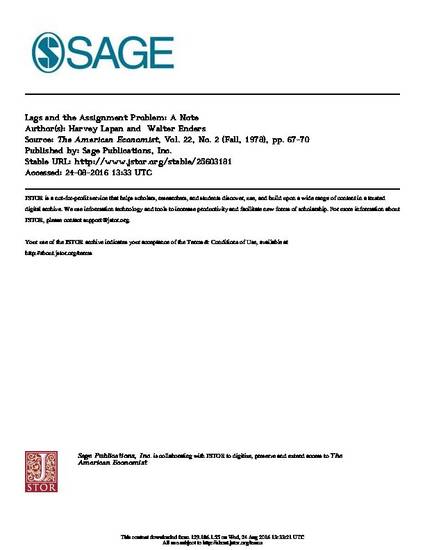
Mundell [5] has demonstrated that monetary policy should be paired with external balance and fiscal policy with internal balance. This seminal article led to a voluminous literature 1 which at tempted to rectify many of the problems inherent in Mundell's flow equilibrium model. Harry John son [2] has characterized this extension of Mun dell's work as having "... lent itself to almost infinite mathematical product differentiation, with little significant improvement in quality of eco nomic product ..." Although we do not fully agree with Harry Johnson-for there are many deficien cies in Mundell's model-we do believe that more can be said concerning the "Assignment Problem" in the context of Mundell's model. Specifically, we examine the effects of introducing discrete lags into the Mundell model. Part A of this note presents a generalized discrete time version of Mundell's model and shows that the "Principle of Effective Market Classification" cannot guarantee stability. Part B then examines how the presence of an out side lag affects the results of Part A.
Available at: http://works.bepress.com/harvey-lapan/45/

This article is from The American Economist 22 (1978): 67. Posted with permission.